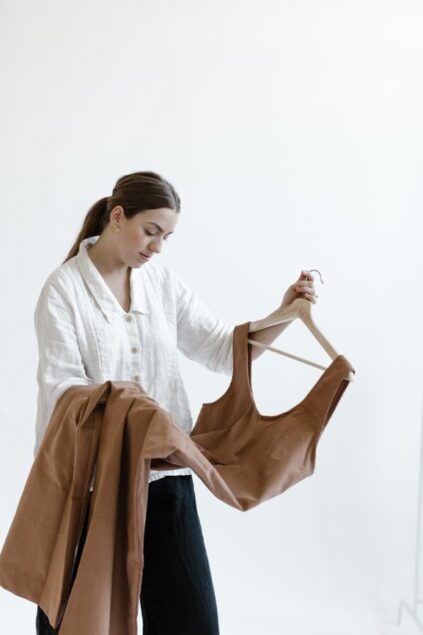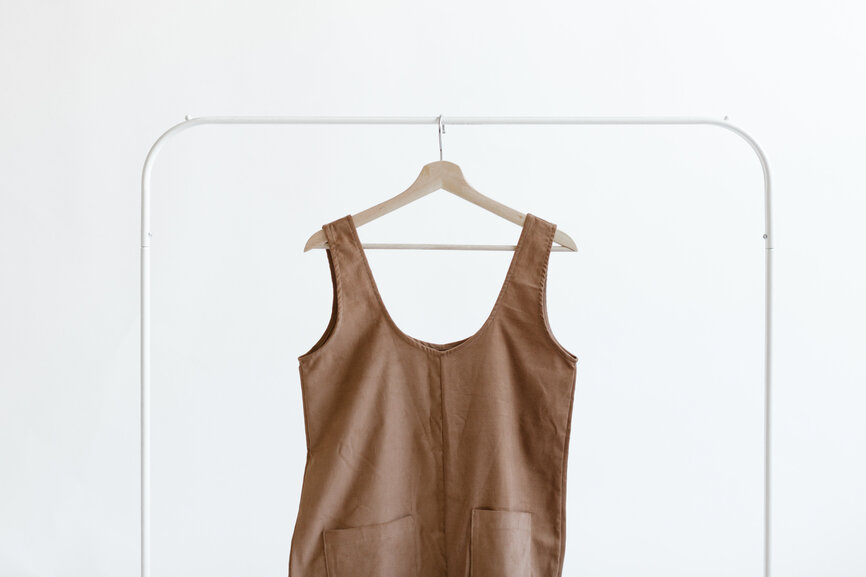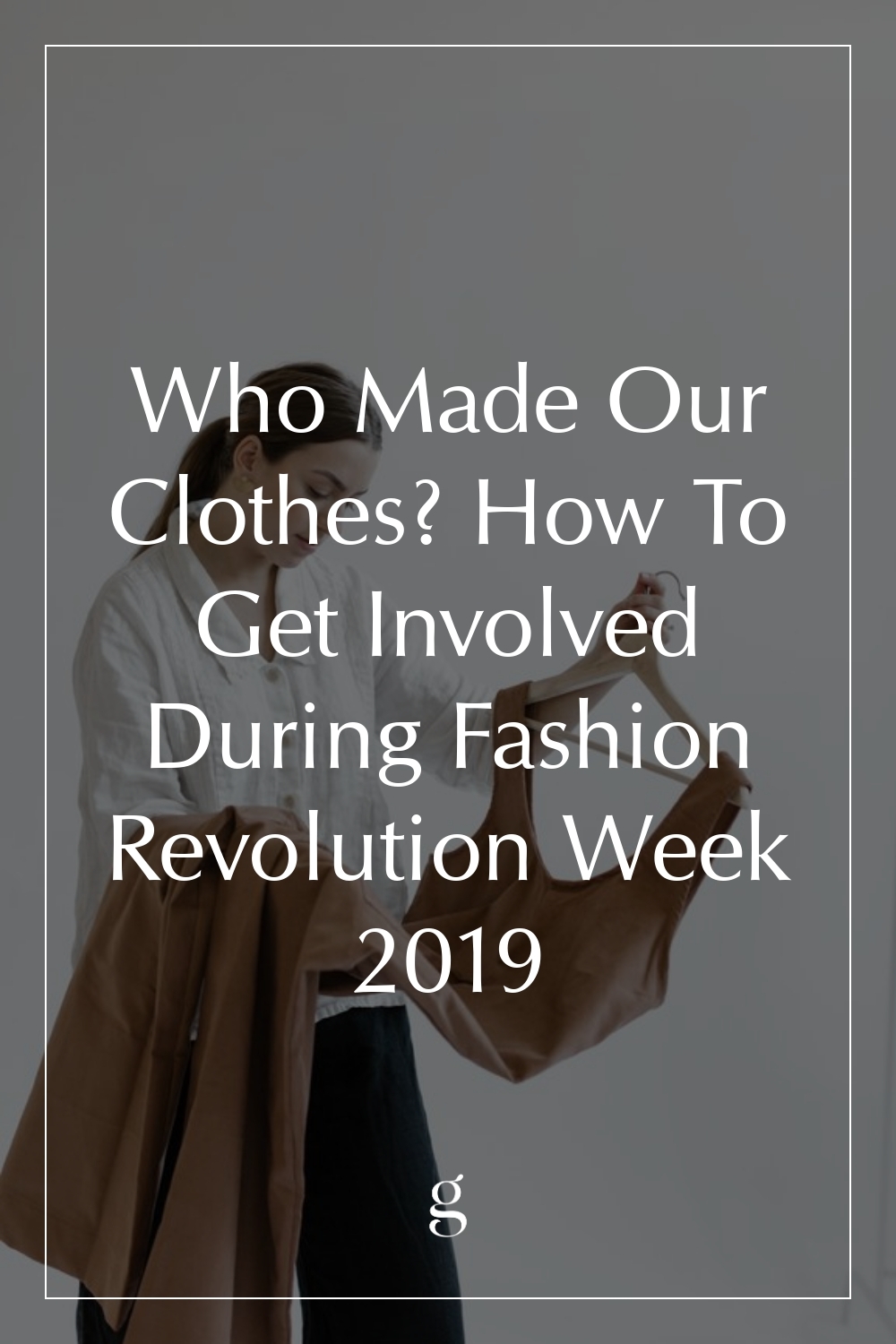
Who Made Our Clothes? How To Get Involved During Fashion Revolution Week 2019
We Need A Fashion Revolution
On April 24, 2013, the Rana Plaza tragedy killed over 1,100 garment workers in Bangladesh and wounded over 2,200 more. The incident left consumers all over the world questioning who makes the clothes we wear every day and in what kind of conditions?
Documentaries like The True Cost shine a light on how the fast fashion industry depletes the earth’s resources and leverages slave labor to pass on a “cheap” cost to the end consumer.
The fashion industry is not alone in its exploitation and environmental injustices. Over $150 billion dollars of profit are generated each year from forced laborers who produce the products we eat, use and wear everyday.
As conscious consumers, it’s more important than ever to vocalize our objections to make a positive difference for the people making our clothes and goods.
Getting Involved In Fashion Revolution Week
Fashion Revolution is a global movement calling for greater transparency, sustainability and ethics in the fashion industry. Fashion Revolution Week occurs each April at the time of the Rana Plaza factory collapse. You can get involved in Fashion Revolution Week by asking the brands you love, #whomademyclothes and demanding greater transparency in the fashion supply chain through advocacy and purchasing habits.
“Get involved in Fashion Revolution Week by asking the brands you love #whomademyclothes —and by demanding greater transparency in the fashion supply chain.”
Making Lifestyle Changes That Matter
Getting started can be difficult. It is easy to get stuck comparing the nuances of product and lifestyle choices with the aim of making an ethically infallible choice. The truth is, it’s rare to find a choice that is perfect.
When consumers sincerely pursue brands and lifestyles that match up to their unique values, decisions become clearer and progress speeds up. Here are 3 steps to integrate a mindful approach as consumer and advocate for ethical fashion.
1. BUY LESS
Thoughtful consumption is not only about buying more conscious products, but also about buying fewer things in general and making each purchase really count in terms of quality, ethics and durability. Consumer culture dictates that we buy trendy, cheap, and frequently—but the payoff is a steep environmental and human cost. Adopting a minimalist lifestyle allows consumers to invest in responsibly-made products that are built to last.
“Adopting a minimalist lifestyle allows consumers to invest in responsibly-made products that are built to last.”
2. BUY FOR ETHICS & SUSTAINABILITY
Since the Rana Plaza collapse, dozens of slow fashion and consumer brands have emerged that are dedicated to ethical and sustainable practices. Ethical fashion brands consider the human impact at every level of design, production and distribution of their product line. Seek out brands that offer fair wages and safe working conditions for their garment workers and that seek to minimize their environmental footprint.
“Seek out brands that offer fair wages and safe working conditions for their garment workers.”
3. ASK QUESTIONS
We cannot understate the collective power of our purchasing habits to force brands to become increasingly transparent about their production practices. There is much evidence that this is already happening. A recent study from Cone found that 9 out of 10 consumers say they expect companies to address social and environmental issues and 90% would boycott a company if they learned of irresponsible or deceptive business practices.
Above all, look for transparency from the brands you support. Look for companies that share their corporate values publicly and back those values with transparent reporting. Look at their websites to see if they publish their carbon footprint, the sourcing of their materials, where their design and manufacturing takes place and their commitments to gender equality and diversity.
Take time to write a simple note to a brand you support—inquiring about their production practices and sustainability commitments. Brands that are aligned to values of ethical and sustainable production will readily share the steps they are taking to protect people and the planet.
“Take time to write a simple note to a brand you support—inquiring about their production practices and sustainability commitments.”

